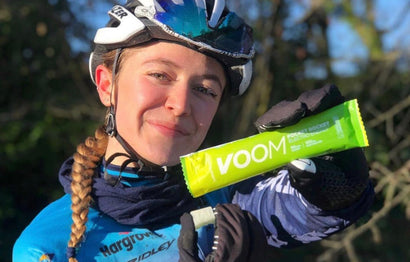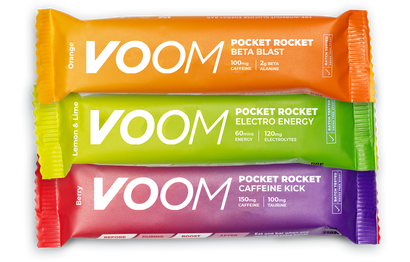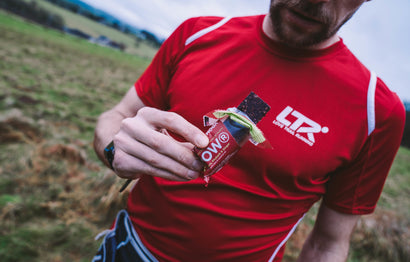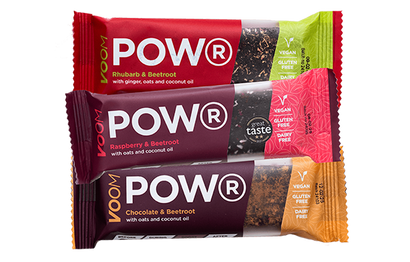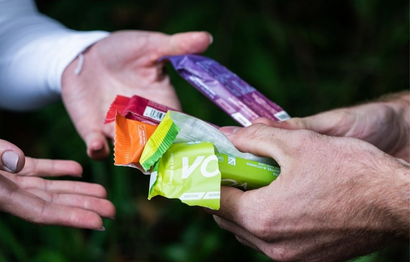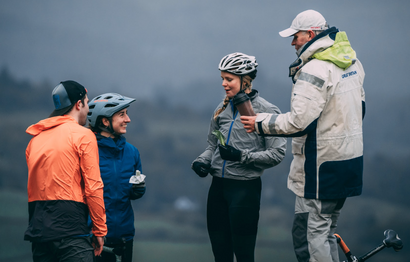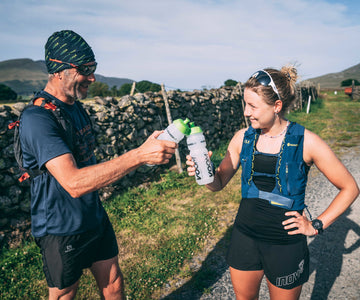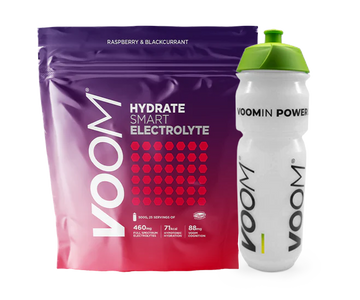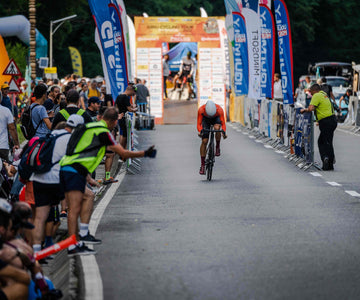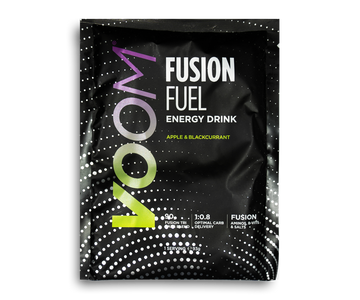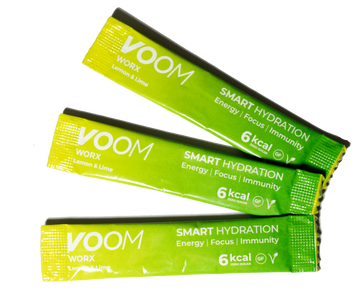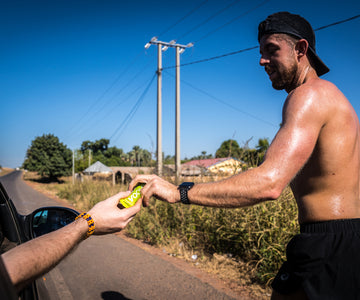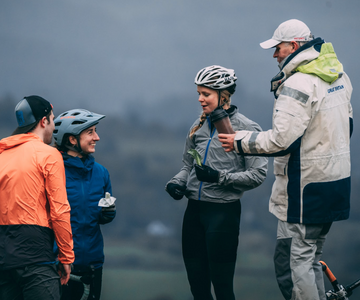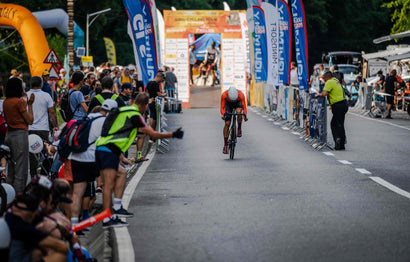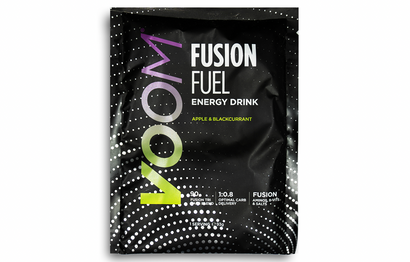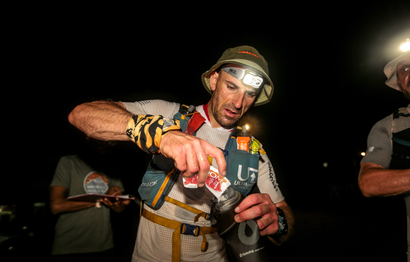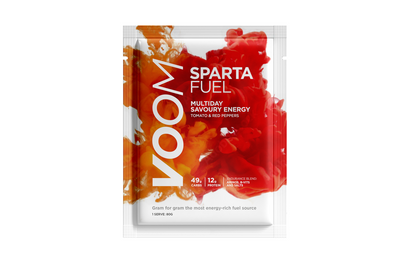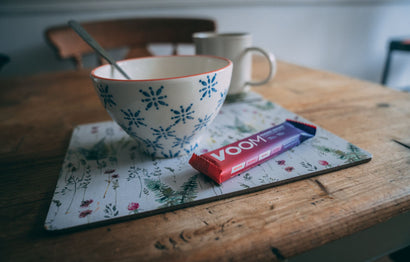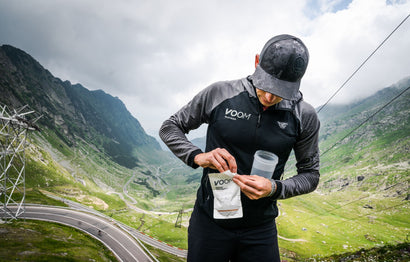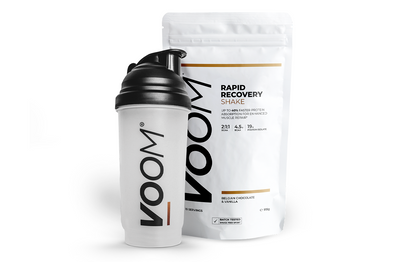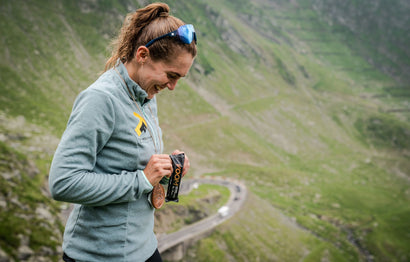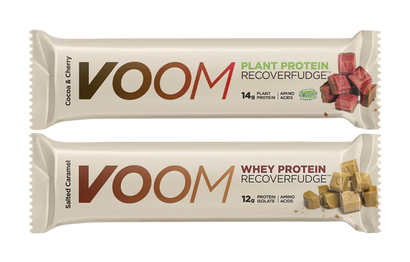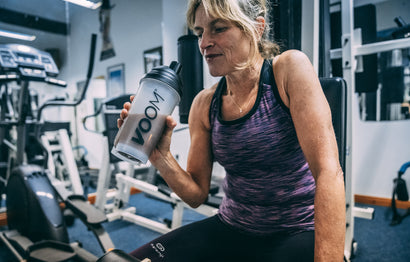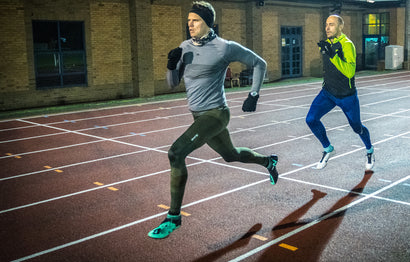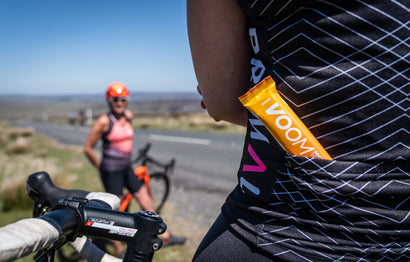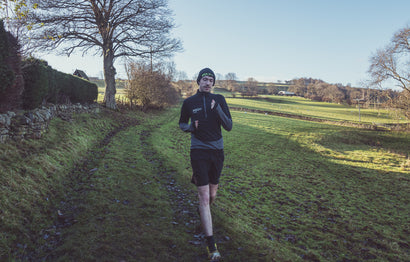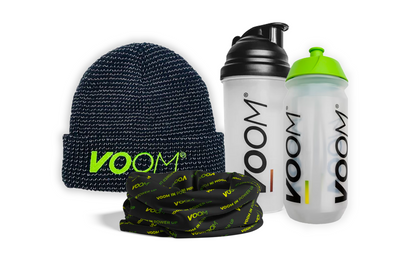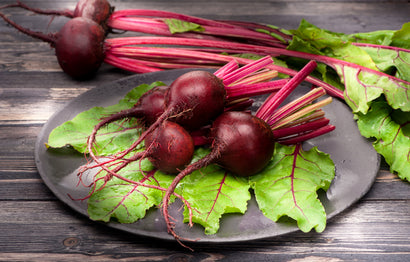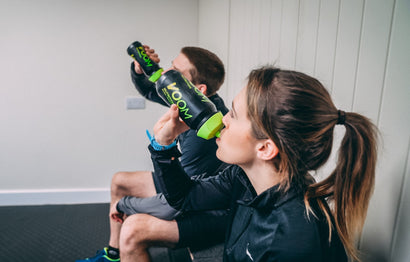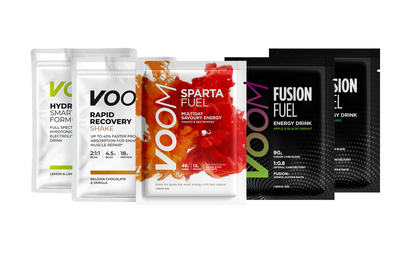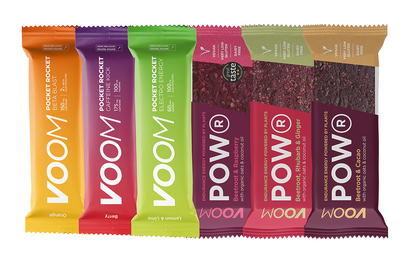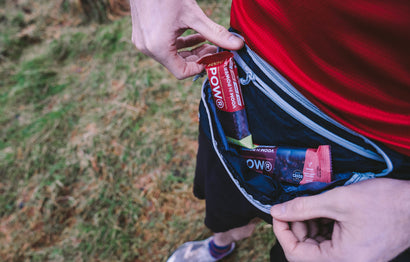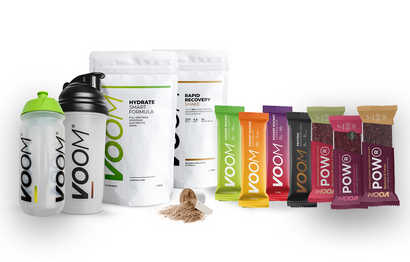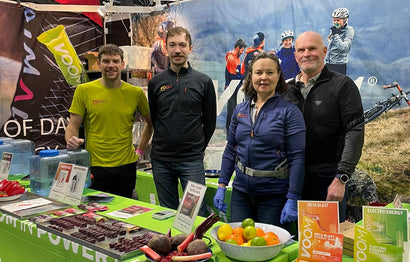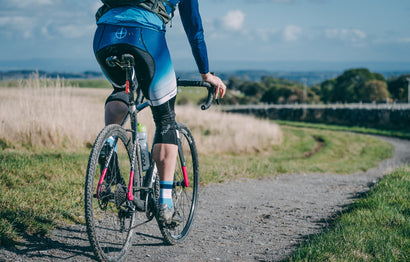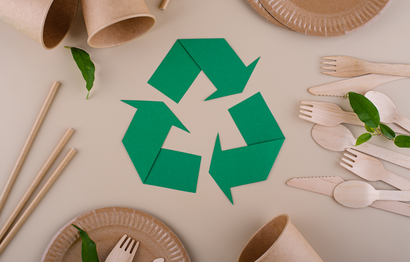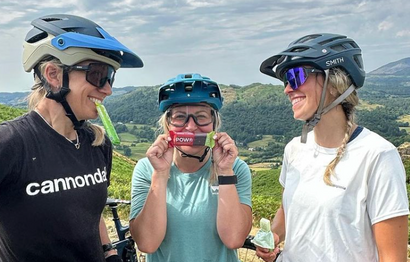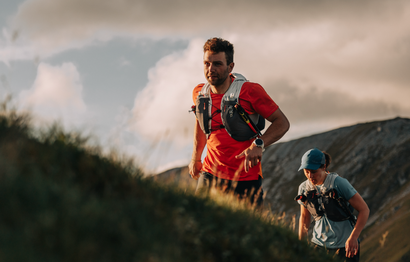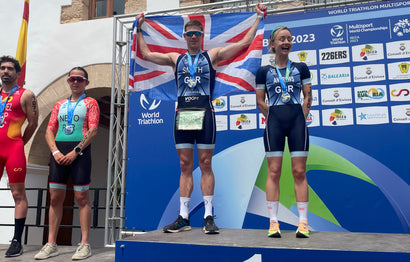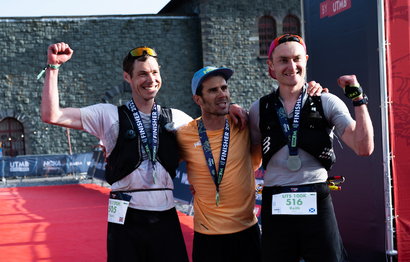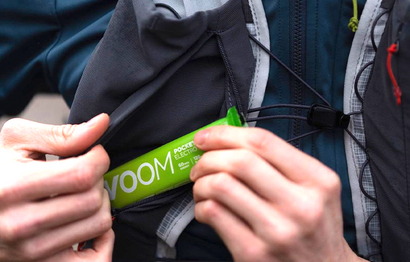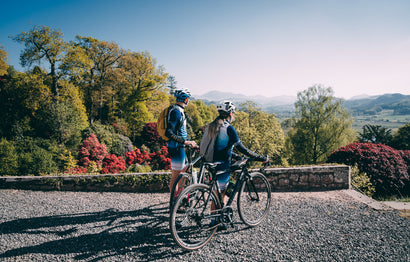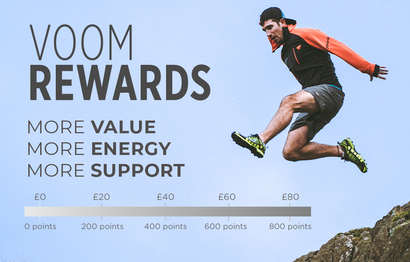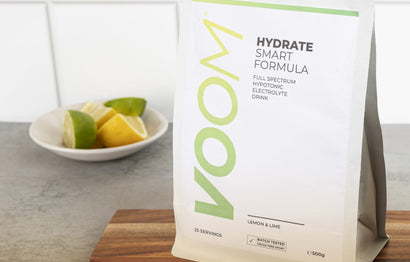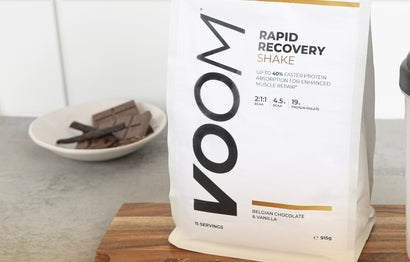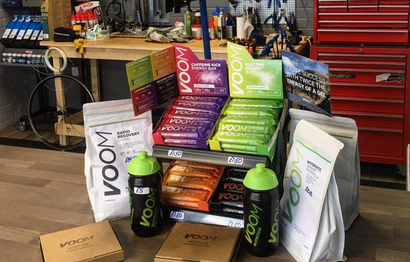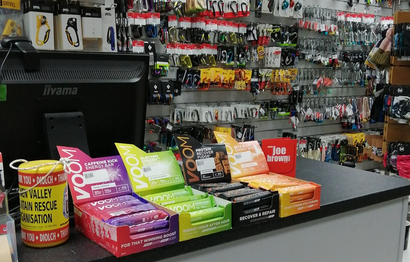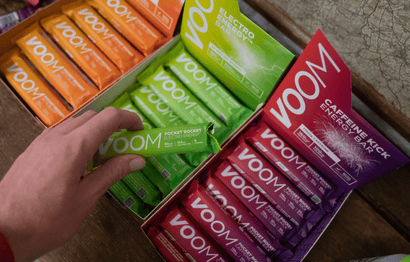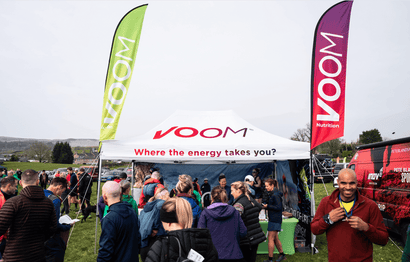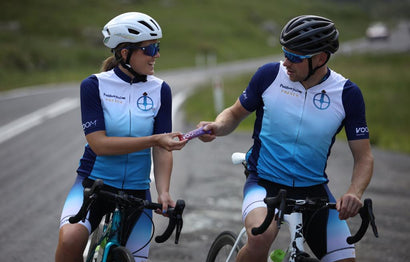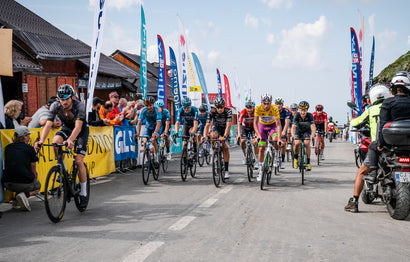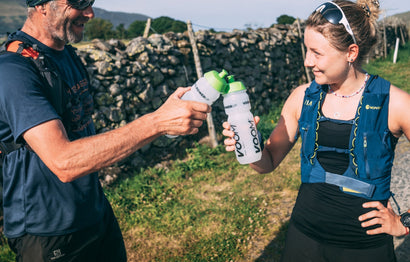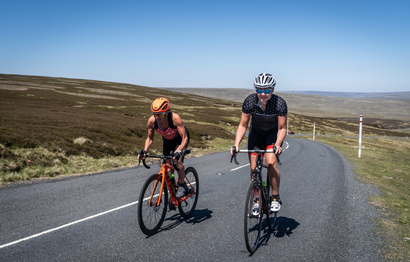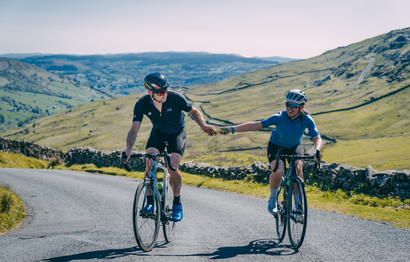When it comes to what to eat on multi-day expedition style races, either stage races or continuous ultra distance events, there’s even more to consider than a single day event.
To help guide your hydration and nutrition strategy we’ve collated our Top 7 Tips on Fueling Multi-Day Races…
1. Get the carbohydrates in
How much carbohydrate to consume during an ultra?
Carbohydrates are the most efficient form of energy your body can use, and research consistently shows a performance benefit to consuming carbs during exercise lasting longer than around 90 minutes. Carbs consumed during exercise are broken down to glucose for use in energy metabolism, or if not immediately needed can be stored as glycogen in the muscles and liver for future use. Conversely, a depletion of the body's glycogen stores can result in a sudden reduction in performance known as 'bonking' or hitting the wall.
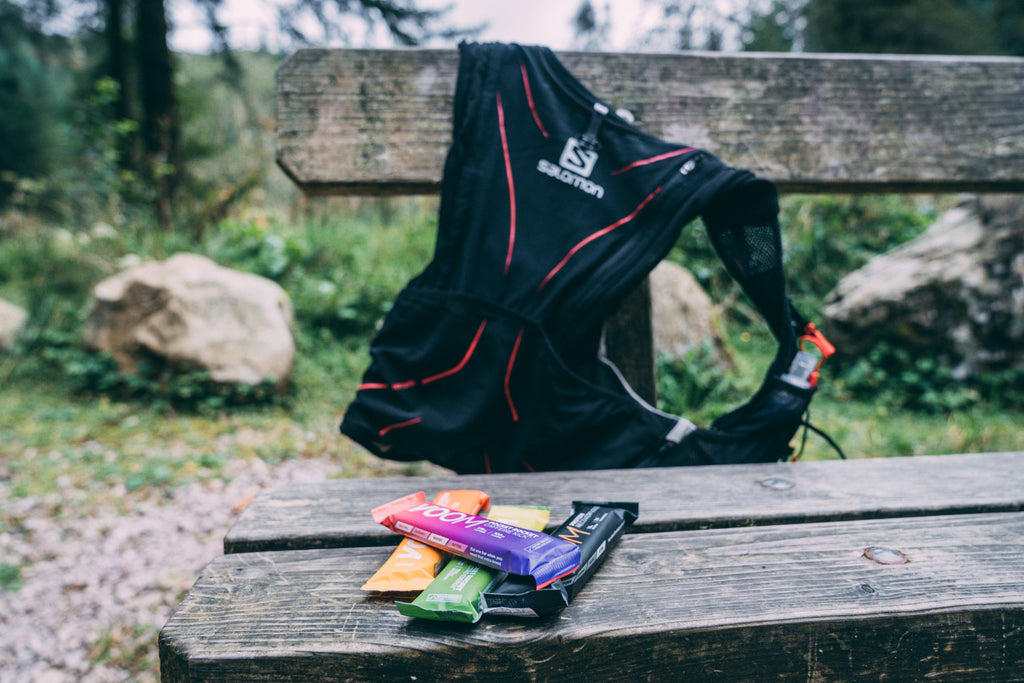
As mentioned, consuming carbs during ultra running has been shown to aid performance and recommendations are based on exercise duration and intensity. Given the steady intensity of ultra distance and multi-day events a carbohydrate intake of 60-90g per hour is recommended. Your intake may be at the lower end of this range if you are also gaining energy from other macronutrients (protein or fat). The body can only absorb around 60g of a single carbohydrate source (glucose) per hour through the small intestine. If you want to take on 90g of carbs per hour then multiple sources of carbs are required which can then be absorbed via different receptors. VOOM Fusion Fuel utilises cluster dextrin, maltodextrin and fructose to allow higher carb absorption per hour with 90g carbs (347 kcal) per serving, whilst maintaining stomach comfort.
2. Don't skimp on getting enough protein!
Do I need protein during a multi day ultra event?
In a healthy diet protein is important for building and maintaining muscles, but debate remains as to if it's necessary during endurance running events. However, during a multi day ultra event your body will need protein! Protein will be used for tissue repair, injury prevention and even immune function which will help you stay strong to take on several big days running in a row. Research suggests a daily intake of 1.4 to 1.7g of protein per kg of body mass, per day, so for example a 75kg runner would require between 105 and 127 grams of protein per day.

Another way to look at protein intake, especially expedition style ultra running is as a percentage of your total calories consumed, where a good aim would be for 15% of calories to be from protein. As an example for protein intake during active periods of a multi-day event, if you take on 400kcal per hour you may want to aim for 60kcal of protein which would be 15g. As a benchmark, VOOM’s Sparta Fuel, specifically developed as a savoury energy source for multi day events, offers 12g of protein per serve (around 48 kcal) as well as 196 kcal from carbs (49g).
If your event follows a stage race format, a good protein dose (around 20g) within your evening meal will aid recovery for the following day’s activity.

3. Count your calories, not just grams of carbs
Having highlighted the importance of both carbs and protein during multi-day events, and knowing that fat is yet another energy source, it may become clear why people start to look at energy intake in terms of calorie intake rather than just grams of carbs. Calories can of course come from carbs, protein or fats, all of which provide the body with energy via different pathways. On shorter duration events, where the intensity is typically higher, carbohydrates are the most efficient energy source, so it makes sense to measure energy intake in grams of carbs per hour. Each of those grams of carbohydrate contain around 3.7 - 4 kcal depending on the specific carb type.
Over longer duration events, with back-to-back days of racing, calories can be a more sensible measure of energy intake as a single figure accounts for fats, proteins and carbs. With practice, allowing the gut to adapt to higher energy intakes, the body can take on 400 kcal per hour during exercise. As an example, the aforementioned 400 kcal in any given hour could come from a combination of 80 grams of carbs and 20 grams of protein.
Alternatively you may want to look at a daily calorie intake, which for ultra runners can total anywhere between 3,500 and 8,000kcal during a multi-day event - the exact energy requirement varies between individuals based on fitness, elevation along the route, weather, altitude and other factors. By looking at what you currently take on during your longer training days and calculating the grams of carbs and calories, you will be able to gauge whether you are fueling adequately or need to increase calories or carbs to get optimal energy intake. If you calculate that you take have taken on 200kcal per hour during your long day on the trails but began to tire after a couple of hours, perhaps try to consume 250kcal per hour on your next run.

4. Hydration and fluid balance
In the most simple possible terms, dehydration negatively affects performance. Beyond that it can start to be detrimental to health and ultimately life-threatening. But what many don’t realise is that as the body dehydrates the rate of absorption from the small intestine slows, and thus energy delivery is compromised, so during a multi-day event hydration is even more important than ever.
Fluid intake requirements are dictated by individual sweat rate, which can vary between individuals and event conditions. For events in moderate temperature a sensible fluid intake may be 400 - 800ml per hour.
During exercise the body increases sweat rate in order to cool itself; in this instance water alone may not be enough to maintain hydration status. This is where electrolytes come in… Sodium, Potassium, Magnesium, Chloride and Calcium are crucial to normal functioning of the nervous system, muscles and other organs within the body, and play an important role in maintaining fluid balance within the cells. Unfortunately these electrolytes are lost in sweat so can become depleted during exercise. Particularly in longer and multi day events it’s absolutely paramount to replace salt loses with a full-spectrum electrolyte mix - this helps maintain hydration status and avoids the onset of cramp or any other performance reduction associated with dehydration.
In your recovery periods make sure you get enough fluid and electrolytes on board. With the best will in the world you're very likely to have some level of dehydration from the previous stint of running so if you can replace these losses before starting the next stage you'll have a much better time!
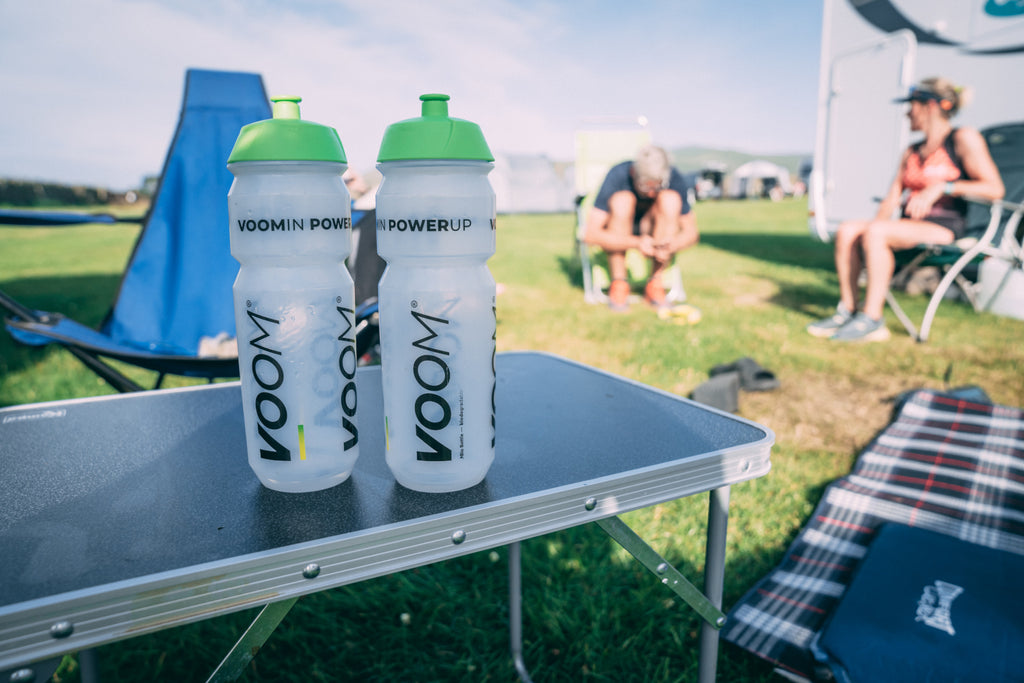
5. Enjoy Different Tastes & Textures
Most ultra runners report enjoying a variety of tastes and textures when taking on their energy, and this is something we absolutely believe in here at VOOM too. Many energy products are sweet, and when you need fast-acting energy this is hard to get away from; that being said, nothing works more quickly than our Pocket Rockets!
Our second range of energy bars, the Pow Plant endurance bar, offer a different texture with an oat base and enjoy the proven health and performance benefits of beetroot which means they are a less sweet energy bar option with three flavours including Raspberry & Beetroot, Cacao & Beetroot and Rhubarb, Ginger and Beetroot.

Considering that over time many people become tired of sweet drinks, or repeatedly taking on the same energy source, known as flavour fatigue, we have developed an unflavoured version of the Fusion Fuel energy drink. This offers a high carb drink with a neutral taste to beat flavour fatigue.
VOOM’s Sparta Fuel is the world’s first savoury energy drink and gram for gram offers more energy with 326 kcal in an 80g serving, or 407 kcal per 100 gram! The Tomato and Red Pepper flavour drink brings a whole new taste profile to the traditional energy drinks market and after several hours or days on the go it can really satisfy the savoury craving, whilst delivering the energy you need.

6. Prioritise Sleep
So often underrated, sleep is when the body really gets to work in recovering and repairing itself. Particularly in stage races, anything you can do to maximise sleep time, and quality of sleep, can really maximise your recovery. If something as simple as packing some ear plugs to keep out the noises around the camp can reap benefits. Recovery processes are accelerated during sleep so if you can get an early night and a good sleep you'll almost certainly feel fresher the next morning for the next stage of the expedition!
7. Practise the strategy
On your first expedition race there’s always going to be some element of going into the unknown, but you will most likely have done single day ultra distance and back to back big days as part of your prep. These are absolutely perfect opportunities to test out your kit and nutrition. Use these training periods to test out what works for you, and what you enjoy, especially as the duration increases. Many runners who love a certain food during a single 3 or 4 hour run may well be sick of it after a couple of 8 hour days of it, so its more than worth trialling your strategy.
VOOM’s Top 3 Picks for Fueling Multi-day events
Sparta Fuel - balanced carbs and protein in a savoury energy drink - gram for gram, no drink has more energy! With low GI carb source to offer sustained energy over long duration and added amino acids, electrolytes and B-vitamins to aid energy metabolism, fight fatigue and support the immune system.
Fusion Fuel - high carb energy drink with 90g per serving from VOOM’s unique tri-carb blend of cluster dextrin, maltodextrin and fructose
Power Plant Endurance Bars - 33g of carbohydrates, fast-acting energy, slow release carbs for sustained energy, dietary nitrates from beetroot to aid blood flow and 3 delicious flavours to choose from.

